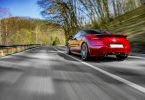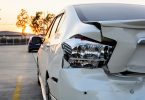You’re at work, and you get a call from an unknown number. You leave your desk, hoping it’s not some kind of emergency. You answer the call and… it’s a cold caller asking if you’ve recently been in an accident that wasn’t your fault. You tell them not to call again, you hang up, you sigh.
But what if the answer is yes? What if you had been in an accident recently?
These cold callers should always be ignored. Don’t take them up on their offers. If you do get into a car accident that isn’t your fault, these are the tips you need to follow.
Assess the damage to yourself and others in the car
Make sure you and your passengers are okay. Take it slow. Make sure you can move everything. Turn off the engine and get out of the car. Take it easy, because some injuries may not be obvious right away.
Call emergency services
Once the vehicle is stopped, the first thing you must do is call emergency services. Be it 911 or 999, you must call them. The police need to be notified, and you may need medical assistance. If you don’t notify the police about the accident, you may not be eligible to claim benefits or compensation from your insurance company.

Don’t advertise the event on social media!
I’m putting this in early because this is often the first thing people do. I always know when my friends have been in accidents because they can’t help but post about it almost immediately on Facebook or Twitter. They share deranged selfies of their bruised and bloody faces. Or they upload photos of their wrecked vehicles, complete with sad faces in the description. People like the concern and the drama it creates, the comments flooding in – “OMG WHAT HAPPENED R U OK!??”. But don’t be tempted.
Insurance companies and other legal entities are allowed to review your social media accounts. If you’ve been discussing the event online, this could affect the outcome of your claims in negative ways. So don’t mention it on social media just yet, and don’t share photos. That being said…
Take photos – and every other bit of information
It’s important you document everything. Take photos of the damage from as many angles as you can. You need to keep these photos for your own reference and that of the law.
In fact, there’s a ton of information you should be recording, if possible. You will need clear recollection of the time and location, as well as the road and weather conditions. If you can, take down the license plate numbers and the vehicle makes and models of the other cars. If you can get the driver’s license number from the other party, good.
You should also the name, department, and badge numbers of the police officers on the scene. They are legally obligated to provide this information, so don’t be afraid to ask! Explain that you need it for legal and insurance action and they should be happy to provide the info. You should also obtain a copy of the police report. Get contact details of any willing witnesses. Lastly, get the insurance information of the people involved (including passengers and witnesses).

Get the lawyers and insurance companies involved
Call a car accident attorney. Insurance companies will generally be okay to call later, but the lawyers should be involved right away. An experienced car accident attorney will result in an informed and fairer representation. This will be to insurance companies and, if it goes there, the court.
Be sure to call your insurance company within seven days; otherwise, you may lose your right to make a claim.
Tend to your health
Get yourself checked by a medical professional. There may be one on the scene. As previously mentioned, some injuries may not reveal themselves straight away.
Even if an immediate check doesn’t reveal anything, you need to keep an eye on yourself over the coming days. After the accident, your body will probably be in a state of shock called acute stress reaction. During this phase, you are less likely to be aware of pain. Keep a note of all changes in your physical and mental condition after the accident. This will be important for health and legal purposes.
Make sure anyone else involved in the accident also keep a record of their health. This will be easier if you live with them. You should also record any changes you notice in the health of other involved parties. Get someone to keep an eye on you, too.
Keep a cool head, make sure you’re safe, and document everything. Take the right steps and you’ll be okay!






